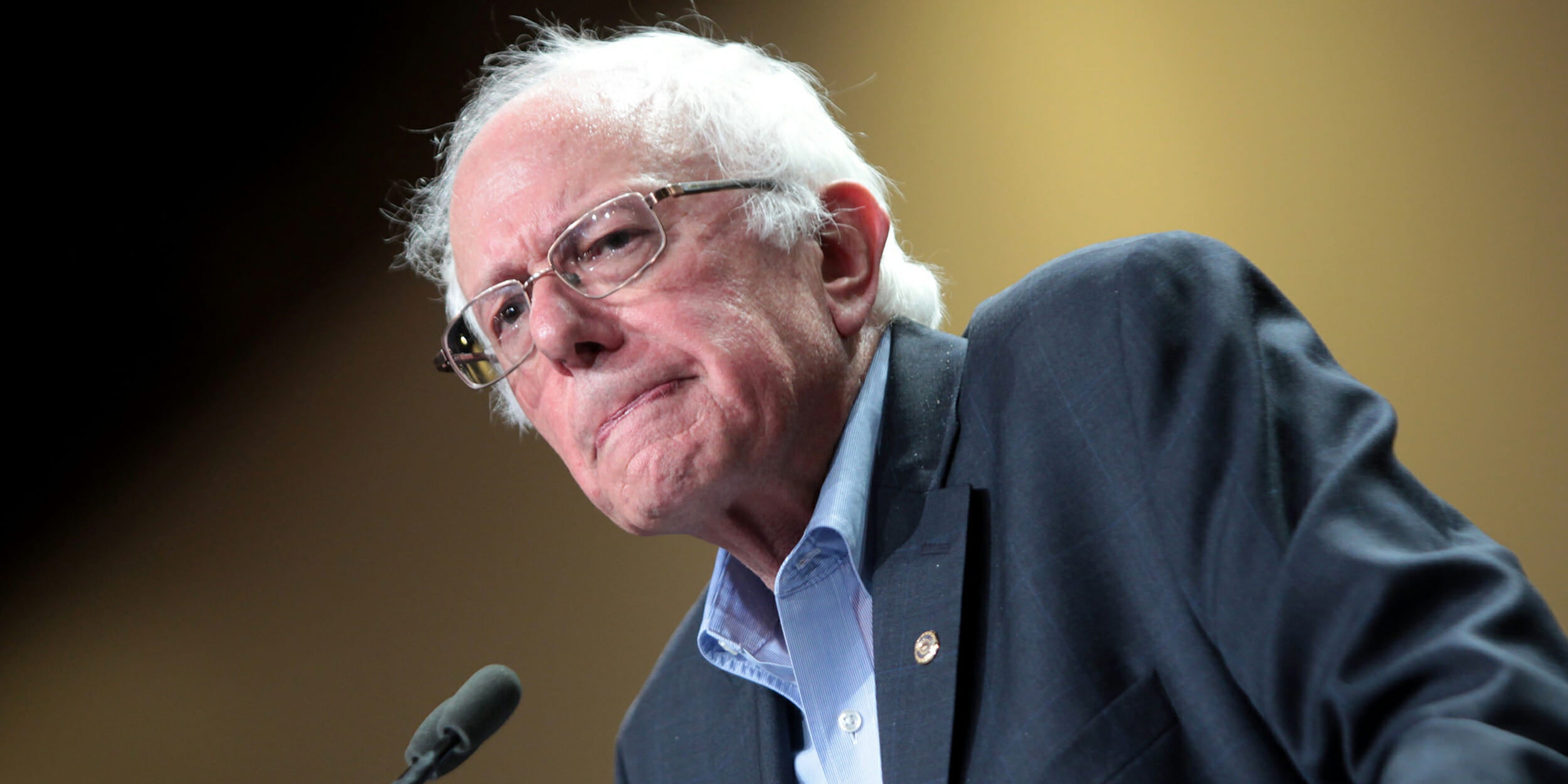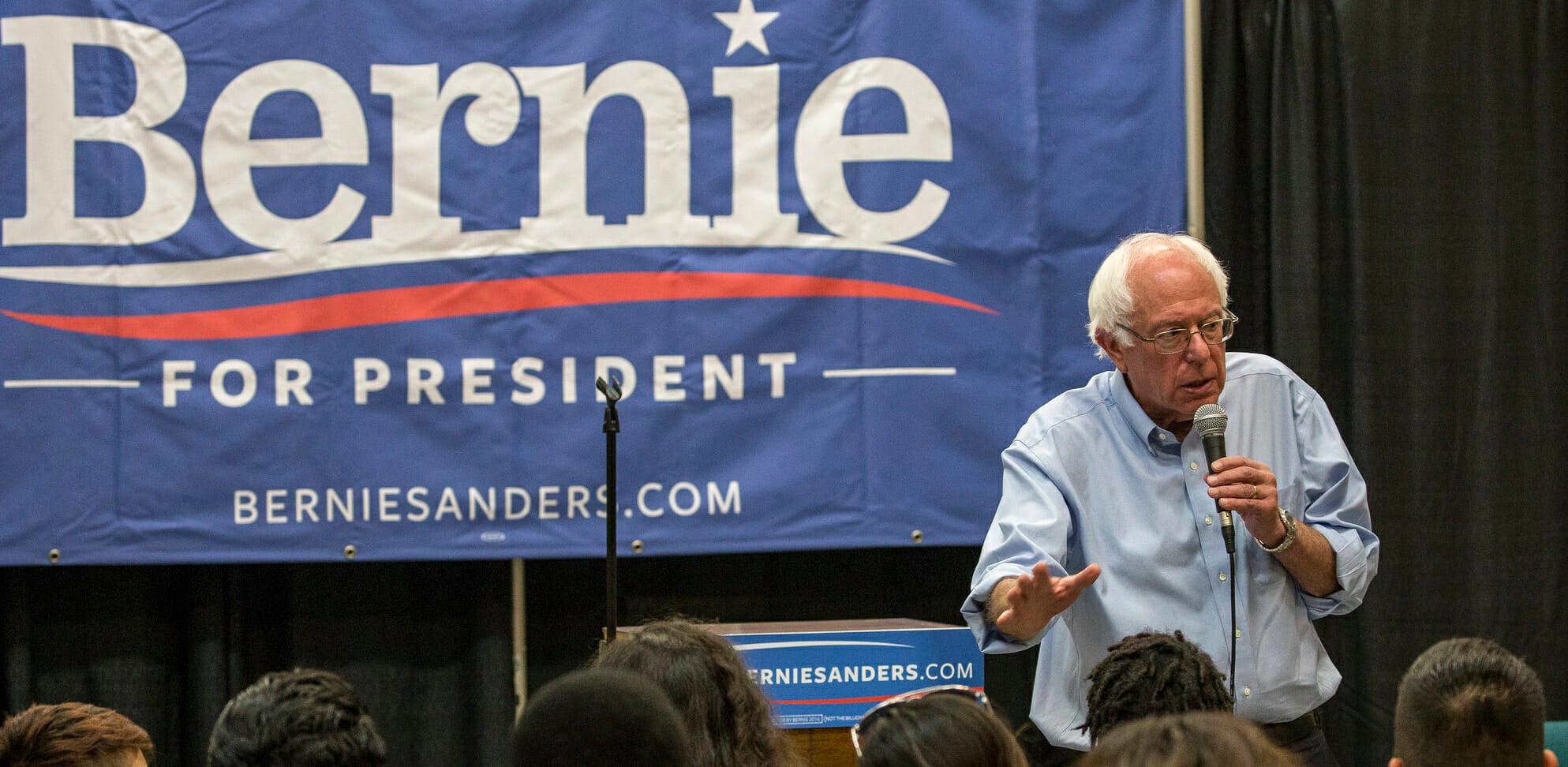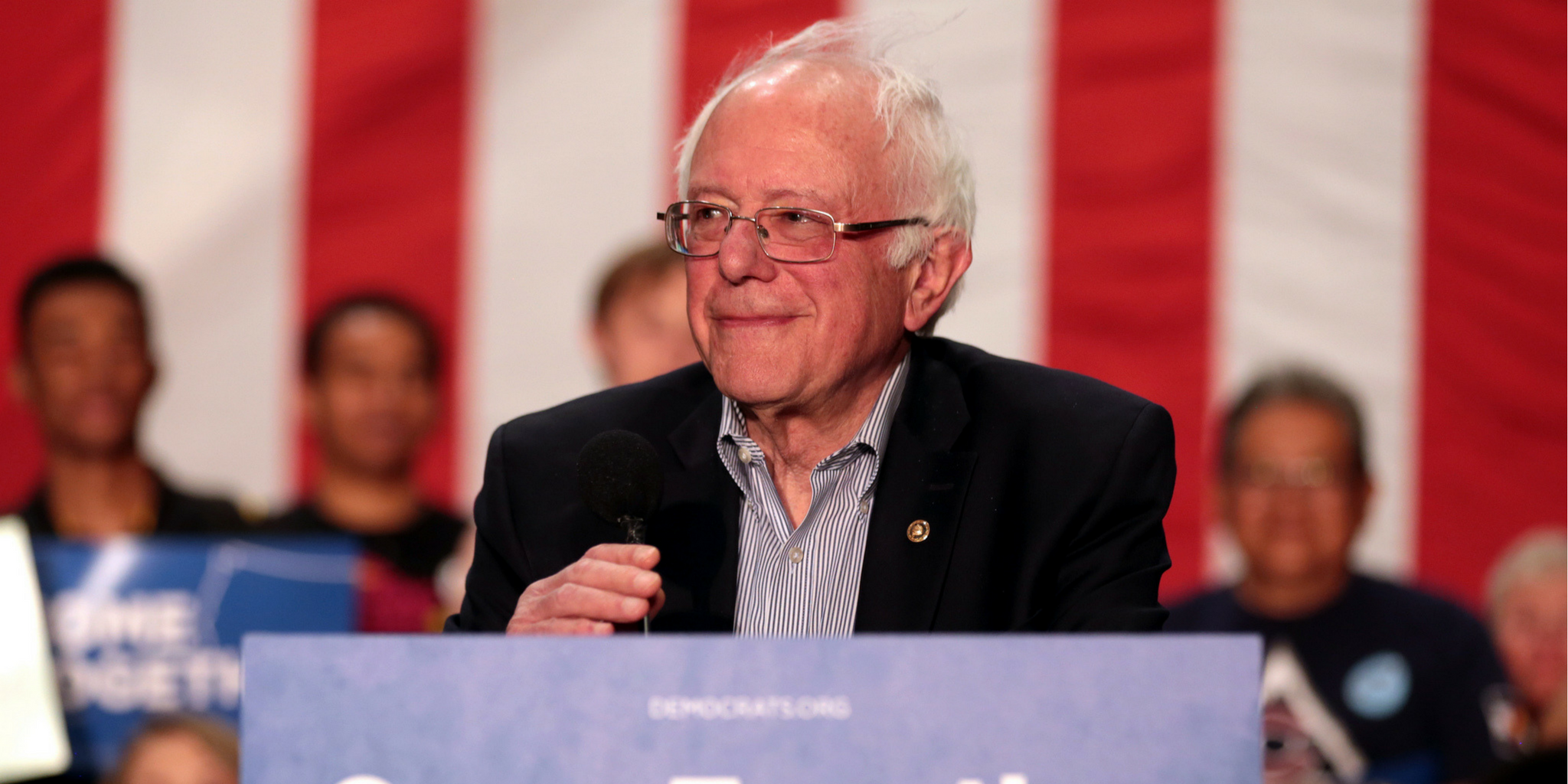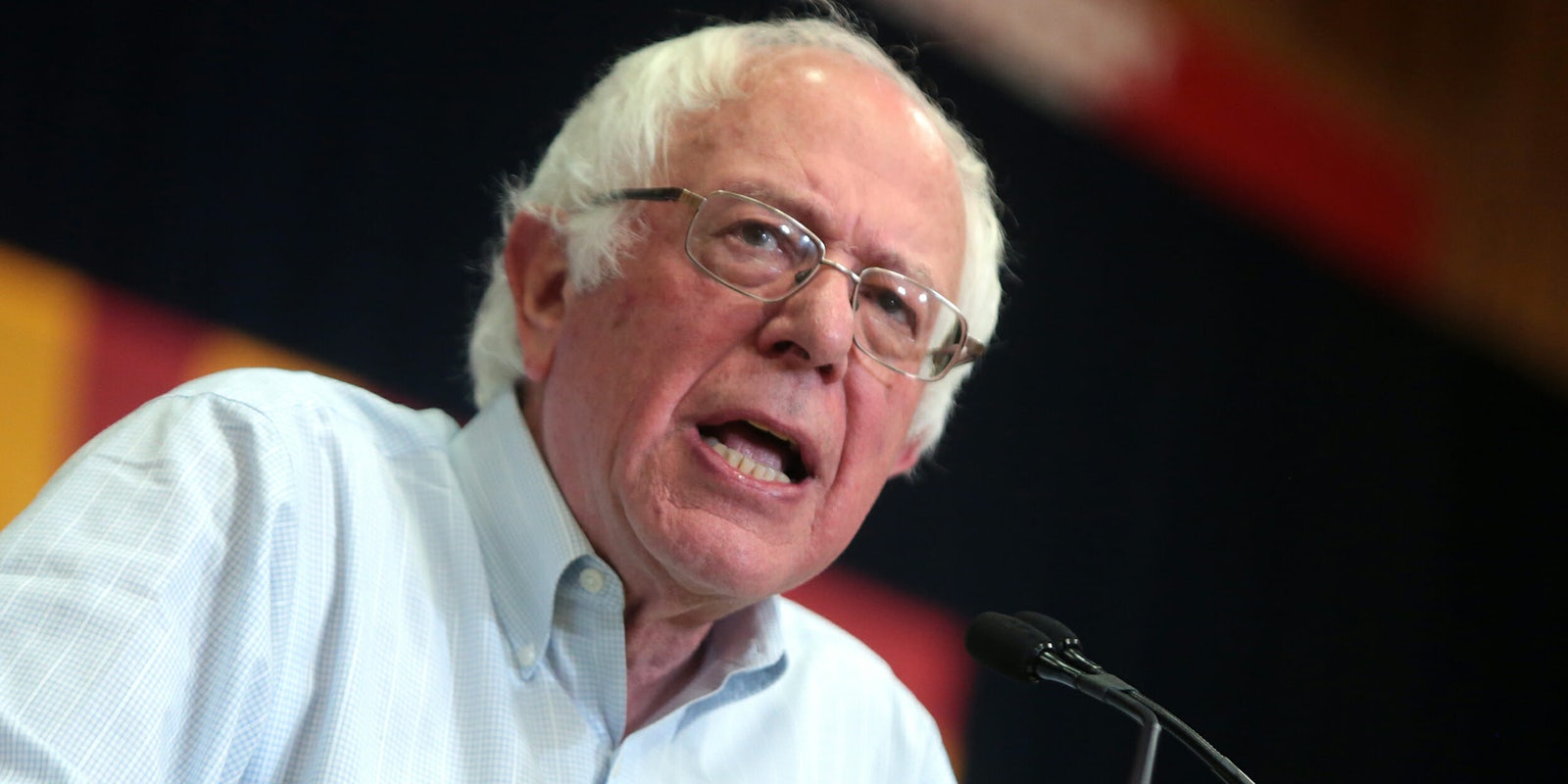Everybody wants to be Bernie Sanders these days.
No, they aren’t mimicking the Vermont senator’s rumpled look or his trademark jumpshot. Instead, they’re stealing the independent senator’s policies as they and he run for the 2020 Democratic nomination for president. Here’s everything you need to know about Sanders’ platform and how it’s changed since 2016.

Is Bernie Sanders a Democrat?
When he first ran for president in 2016, Sanders was considered an outlier in the Democrat party. Many argued he wasn’t truly a Democrat. He identified as an independent and was considered too far to the left.
But in the early stages of the 2020 Democratic primary, it’s easier to point out the Democrats who aren’t aligned with Bernie Sanders. The initial entries into the race are all politicians claiming to support Sanders’ trademark proposals like Medicare for all, the Green New Deal, free college, and a $15 minimum wage.
One of those proposals, $15 minimum wage, is hard to mince words about: Either you’re being paid $15 an hour or you aren’t. Other issues Sanders supports, like the Green New Deal, Medicare for all, and free tuition, aren’t so easy to pin down.
But unlike candidates who have danced around Medicare for all during their launches, Sanders has had a staunch set of principles for each issue he supports.
Bernie Sanders 2020 platform and issues
1) Medicare for All
Defining healthcare proposals can be tricky. This is particularly true in our current moment when Medicare for All is gaining popularity but a number of presidential hopefuls are still taking cash from the healthcare industry.
The essential distinction between a real “Medicare for All” plan and a pretender is the role of private insurance companies: there shouldn’t be one in the real deal.
Under the plans championed by Sanders, Rep. Pramila Jayapal (D-Wa.), Rep. Alexandria Ocasio-Cortez (D-N.Y.) and other progressives, private insurance companies would no longer play a role in the healthcare needs of Americans. They argue that this is vital because if private insurance companies continue to exert power in the martketplace, the government will have trouble keep prices low for patients.
A “public option,” by contrast, would allow the government to provide a plan that is offered alongside private insurance plans. Under this policy, the price-gouging of private insurance companies would remain a part of American life.
A quick, handy way to tell if other candidates’ plans stack up is if they support a single health program with comprehensive coverage that is free at the point of service and covers everyone while the government oversees pricing.
That is what Bernie Sanders supports.
This quick and dirty analysis does not account for every aspect of healthcare. Sanders’ plan is the truest to “Medicare for All” of the candidates currently in the presidential race, but he has been criticized from the left for some aspects of his plan, including the way it handles long-term care and elder care.
For a full accounting of the differences between the various iterations of Medicare for All, Tim Faust’s, “The Only Guide to Medicare for All That You Will Ever Need” at Splinter is a nice deeper dive.
READ MORE:
- Are you being harassed by a Bernie Bro or a Bernie bot?
- Welcome to Bernie 2020 Twitter, same as Bernie 2016 Twitter
- Bernie Sanders memes resurface after 2020 bid announcement
2) Green New Deal

Similarly, many candidates say that they support a Green New Deal, but they don’t necessarily support the Green New Deal resolution introduced by Ocasio-Cortez. Furthermore, Ocasio-Cortez’s resolution is just a broad framework, and so it is easy for less environmentally friendly candidates to say they support it while still taking cash from corporations and lobbyists working against its goals
When it comes to a Green New Deal, Sanders is the real deal. He is reportedly working on his own version of a Green New Deal, and early speculation is that it is will flesh out Ocasio-Cortez’s version in similarly aggressive terms.
Though we are likely months away from Sanders’ official plan being released, it is expected to dig into how America could move towards zeroing out carbon emissions, while offering many of the same aggressive benchmarks laid out by Ocasio-Cortez.
Reading Ocasio-Cortez’s resolution (introduced alongside Sen. Ed Markey (D-Mass.)) and progressive thinktank Data for Progress’ 40-page proposal should give you an idea of where Sanders will land.
Ocasio-Cortez’s non-binding resolution contains a variety of measures aimed at curbing climate change and protecting the environment. Some of the proposed measures include overhauling and upgrading America’s infrastructure, investing in renewable energy, expanding public transportation, and jobs training. Expect a similar focus in Sanders’ expanded proposal.
3) $15 minimum wage
Here we have a policy proposal that requires less explanation: Bernie Sanders supports raising the minimum wage to $15 an hour.
The current minimum wage in the United State is $7.25 an hour and has not been raised since 2009.
4) Bernie Sanders’ tax plan
“How are we going to pay for it?” is a common refrain among Bernie’s opponents. What this ignores is that Bernie has a fairly detailed proposal for how to pay for his programs.
In addition to cuts to military spending, Sanders would raise taxes. It is important to point out that for your average working class person, the modest increase would be mostly offset by getting rid of things like health insurance premiums and student loans.
The bulk of the money to pay for Sanders’ programs would come from wealthy corporations and individuals. Steep increases in capital gains and estate taxes would be accompanied by increases in the marginal tax rate for high-income earners, topping out at a rate of 70 percent for dollars earned in excess of $10 million.
Along with raising the minimum wage, Sanders supports accompanying economic measures aimed at leveling the playing field between the one percent and the rest of Americans.
But taxes aren’t his only plan for the economy. Sanders is known for wanting to break up the big banks and imposing greater regulations on the financial sector. The most recent version of this plan would limit Wall Street banks to holding no more than $584 billion in assets.
Sanders has expressed his support for unions organizing across a variety of industries. Since the 2016 election, he has supported workers at a Mississippi Nissan plant, at Disneyland, and at Amazon struggling for higher wages and better working conditions. He plans on introducing labor-friendly legislation to help the recent resurgence of union strength in America.
Sanders also believes that campaign finance reform aimed at diminishing the role of money in politics is essential. In his email announcing his candidacy to supporters, Sanders specifically called out Citizens United, voter suppression, and gerrymandering. He does not take money from corporate PACs.
The gender pay gap is also a deep concern for Sanders. He hopes to make pay equity a part of his campaign. The Paycheck Fairness Act, which Sanders co-sponsored, would bar employers from retaliating against employees who ask questions about their wages. Sanders also supports paid family leave: he co-sponsored Sen. Kirstin Gillibrand’s (D-N.Y.) bill that would establish universal paid family leave.
5) Free tuition

When it comes to secondary school, Sanders is a big supporter of teachers unions and public education. He is opposed to charter schools.
Public college tuition should be free according to Sanders. He is also in favor of drastically reducing student loan interest rates. He has previously floated halving all existing student loan interest rates and allowing those with debt to refinance.
6) Criminal justice
A battery of criminal justice reforms is on the table for Sanders, including ending cash bail, abolishing private prisons, legalizing marijuana, and limiting gun sales.
Sanders has also indicated that he would like to launch automatic federal investigations into deaths in police custody.
READ MORE:
- Bernie Sanders’ new plan offers every American work, living wage
- Bernie Sanders’ ‘Cardi B is right’ tweet is lighting up the internet
- Why teens love Bernie Sanders so much
7) Foreign policy
Generally, Sanders has focused on domestic policy far more than foreign policy during his time in politics. But he has worked on his foreign policy bonafides since 2016. He has been an instrumental part of the effort to end America’s involvement in Saudi aggression in Yemen. However, unlike Reps. Ilhan Omar (D-Minn.) and Rashida Tlaib (D-Mi.), he has been reticent to speak out in favor of the Palestinian people.
More broadly, Sanders’ foreign policy views are generally anti-war, anti-imperialist, anti-colonial, and anti-fascist.
Now, as more and more candidates adopt his long-held stances, the only question is not will Bernie run, but will he win?


